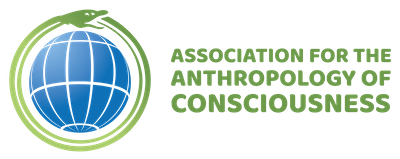Chicago Hilton: Grand Tradition Room
Friday November 22, 2013
1:45 PM-5:30 PM
In the twenty first century sound seems to surround us everywhere, and music seems to be within reach of everyone. Sound emitting devices come in all sizes and in many forms, from chimes to radios, cell phones and home theatre systems, to the PA systems used in stadiums and concert halls. The universe of sound seems to be ever-expanding. New sound devices and musical instruments emerge continuously from the confluence of older ones and new developments in electronics. In music, acoustic-based instruments and ways of playing co-exist with digital instruments, music-based games and virtual technologies. While in the past it was believed that electronic sounds and music would come to dominate over more ‘natural’ technologies, today we find types of music, such as rock, hip hop and ‘ambient’, that intentionally combine, ‘natural’ sounds with electronic ones. Digital technologies, from CDs to MIDI, affordable music applications, interactive music-centered games, and the internet, would appear as tools of democratization that make music available to everyone everywhere; Jacques Attali’s dream of a world of music composers seems within close reach. However, the ways in which sound and music are experienced, created, enjoyed, or endured are profoundly cultural, and social differences continue to impact on the creation and consumption of sound and music around the world. This panel brings together anthropologists working on sound, technology and music in different locations and from different angles: from musicians’ instruments and their use of analog and digital technologies to issues of gender, voice, education, discrimination and pollution in sound and music. The session showcases the fluid nature of sound and music, which in our times becomes evident from the juxtaposition of ‘natural’ and highly manipulated sounds, the tension between market-driven trends and creativity, and the continuous rupture between any possible ‘natural to artificial’ sound continuum. In the 1970s Murray Schafer conceptualized the increasing low-fi muddling of what he called ‘the soundscape’ as the result of the sound imperialism inherent in industrial and post-industrial society. In the twenty-first century, however, we see through these papers that our soundscapes are the mixed result of culture and technology, and find that not only power and technology, but also everyday aesthetics and creative expression inform sound and music-related practices everywhere. Here we explore how people continue to find meaning and cultural significance in sound and music practices, and how cultural dynamics inform our understanding of the sonic environment as yet other ways to create difference. [Text Originally in the AAA 2013 Program]
Panel Chair: Gabriela Vargas-Cetina PhD (Universidad Autonoma de Yucatan)
Panel Organizer: Gabriela Vargas-Cetina PhD (Universidad Autonoma de Yucatan)
Discussants: Stephen D Glazier (University of Nebraska-Lincoln); Michelle Bigenho (Hampshire College)
Presenters: Scott Swan (Florida State University); Laura Steil (Ecole Pratique des Hautes Etudes); Mack Hagood (Miami University, Ohio); Sarah Renata Strothers (Florida State University); Steven Elster (Center for Investigations of Health and Education Disparities, UCSD); Walter S. Gershon (Kent State University); Darren Mueller (Duke University); Reighan A Gillam (University of Michigan); Grant Rich (Independent Scholar); Heather Levi (Temple University); Melisa Riviere (University of Minnesota); Gabriela Vargas-Cetina PhD (Universidad Autonoma de Yucatan)
Presentations Include:
Doo Wop: Black Urban Consciousness and the Limits of Communitas in Digitally Mediated Performance
Scott Swan (Florida State University)
Boucan: loud “African” Girls Singing and Dancing in Public Spaces
Laura Steil (Ecole Pratique des Hautes Etudes)
Remediations: Audiological Media and the Experience of Tinnitus
Mack Hagood (Miami University, Ohio)
Shakuhachi in a Modernized World: Mediation of a Transformed Culture in the United States
Sarah Renata Strothers (Florida State University)
Establishing a Conversation With the Past and the Present: Towards a Greater Understanding of Southern California Creation Stories and Songs
Steven Elster (Center for Investigations of Health and Education Disparities, UCSD)
Knowledge Is a Sound: Teaching and Learning Science in Four Urban Classrooms
Walter S. Gershon (Kent State University)
Ghost Notes: Re-Performing Duke Ellington’s Such Sweet Thunder
Darren Mueller (Duke University)
Sonic Blackness: Race, Space, and Voice in Afro-Brazilian Radio
Reighan A Gillam (University of Michigan)
Music and Local Culture: Turtle Shells in Punta Rock in Belize
Grant Rich (Independent Scholar)
Stratified Music: Discourses of Artistry and Economy in Condesa, DF
Heather Levi (Temple University)
Between > (play) and |<< (Rewind): Media As An Ethnographic Place
Melisa Riviere (University of Minnesota)
Identity, Music Technology and The Nation-State In Yucatan, Mexico
Gabriela Vargas-Cetina PhD (Universidad Autonoma de Yucatan)
